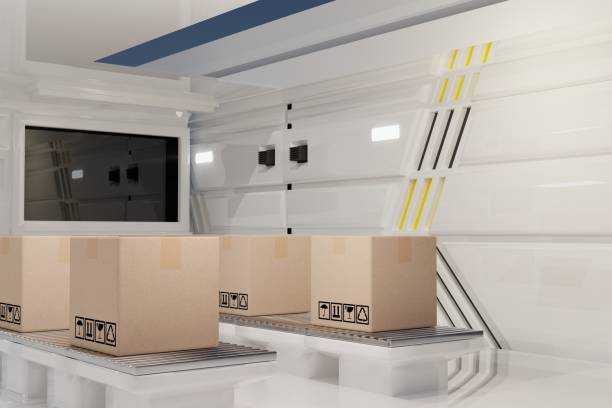Packing Jobs in the UK: Opportunities and Developments
The United Kingdom's packaging industry plays a crucial role in various sectors, from manufacturing and retail to e-commerce and logistics. Packing jobs form an integral part of this industry, contributing significantly to the UK's economy and employment landscape. As consumer demands evolve and technological advancements reshape traditional processes, the packing sector continues to adapt and offer diverse opportunities across the country.

What role do packing jobs play in the UK’s economy?
Packing jobs contribute substantially to the UK’s economy by supporting multiple industries and facilitating the smooth flow of goods. These roles are essential in ensuring products reach consumers in optimal condition, maintaining quality standards, and enhancing the overall customer experience. The packaging industry in the UK employs thousands of workers across various skill levels, from entry-level positions to supervisory roles.
The economic impact of packing jobs extends beyond direct employment. They support related industries such as logistics, warehousing, and transportation. Additionally, efficient packaging processes help reduce waste and damage during transit, leading to cost savings for businesses and contributing to sustainability efforts.
How is technology reshaping tasks within packaging facilities?
Technology is transforming the nature of packing jobs in the UK, introducing new efficiencies and changing the skill requirements for workers. Automated packaging systems, robotics, and artificial intelligence are increasingly being integrated into packaging facilities, streamlining operations and improving productivity.
These technological advancements are reshaping tasks within packaging facilities in several ways:
-
Automated sorting and conveyor systems reduce manual handling and increase processing speed.
-
Robotic arms and pick-and-place machines assist with repetitive packaging tasks, improving consistency and reducing physical strain on workers.
-
Digital inventory management systems enhance accuracy and real-time tracking of products.
-
Quality control processes are augmented with computer vision and AI-powered inspection systems.
While some traditional manual tasks are being automated, new roles are emerging that require skills in operating, maintaining, and troubleshooting these advanced systems. This shift is creating opportunities for workers to upskill and transition into more technical positions within the packaging industry.
Are there regional differences in packing opportunities across the UK?
Packing job opportunities vary across different regions of the UK, influenced by factors such as local industries, population density, and proximity to major transportation hubs. Some notable regional differences include:
-
London and the Southeast: With a high concentration of businesses and consumers, this region offers numerous packing jobs in e-commerce fulfillment centers and distribution hubs.
-
Midlands: Known as the “heart of manufacturing” in the UK, this area provides packing opportunities in various industrial sectors, including automotive and aerospace.
-
Northern England: Cities like Manchester and Leeds have seen growth in warehousing and logistics, creating demand for packaging roles.
-
Scotland: The food and beverage industry, particularly in whisky production, offers specialized packing jobs.
-
Wales and Northern Ireland: These regions have a mix of opportunities in manufacturing, agriculture, and food processing sectors.
While opportunities exist across the UK, workers may find more specialized or abundant options in certain regions based on the local economic landscape.
Why is accuracy so important in packaging processes?
Accuracy in packaging processes is paramount for several reasons, impacting both businesses and consumers:
-
Product integrity: Accurate packaging ensures that products are protected during transit, reducing the risk of damage and associated costs.
-
Customer satisfaction: Correctly packed orders lead to positive customer experiences, fostering brand loyalty and reducing returns.
-
Regulatory compliance: Many industries, such as pharmaceuticals and food, have strict packaging regulations that must be adhered to for safety and legal reasons.
-
Inventory management: Precise packaging helps maintain accurate stock levels, preventing overstocking or stockouts.
-
Cost efficiency: Accurate processes minimize waste in materials and reduce the need for repackaging or returns handling.
-
Brand reputation: Consistently well-packaged products contribute to a positive brand image and customer perception.
Given these factors, businesses invest in training, technology, and quality control measures to maintain high accuracy standards in their packaging operations.
What future trends could influence the development of packing roles?
Several trends are likely to shape the future of packing jobs in the UK:
-
Sustainability: Increasing focus on eco-friendly packaging materials and processes will create new roles in sustainable packaging design and implementation.
-
Automation and AI: Continued integration of advanced technologies will lead to more hybrid roles combining technical skills with packaging expertise.
-
Personalization: Growing demand for customized packaging may create specialized roles in on-demand and bespoke packaging services.
-
E-commerce growth: The expansion of online retail will drive demand for efficient and innovative packaging solutions, potentially creating new job categories.
-
Blockchain and traceability: Implementation of blockchain technology for supply chain transparency may introduce new roles in packaging authentication and tracking.
-
Augmented reality (AR): AR applications in packaging could lead to jobs involving interactive packaging design and implementation.
These trends suggest that while some traditional packing roles may evolve, new opportunities will emerge, requiring a diverse range of skills and adaptability from workers in the packaging industry.
In conclusion, packing jobs in the UK continue to play a vital role in the economy, adapting to technological advancements and changing consumer demands. While regional differences exist, opportunities are spread across the country, with accuracy remaining a critical aspect of packaging processes. As the industry evolves, future trends indicate a shift towards more specialized, technology-driven roles, highlighting the importance of continuous learning and skill development for those in the packaging workforce.




